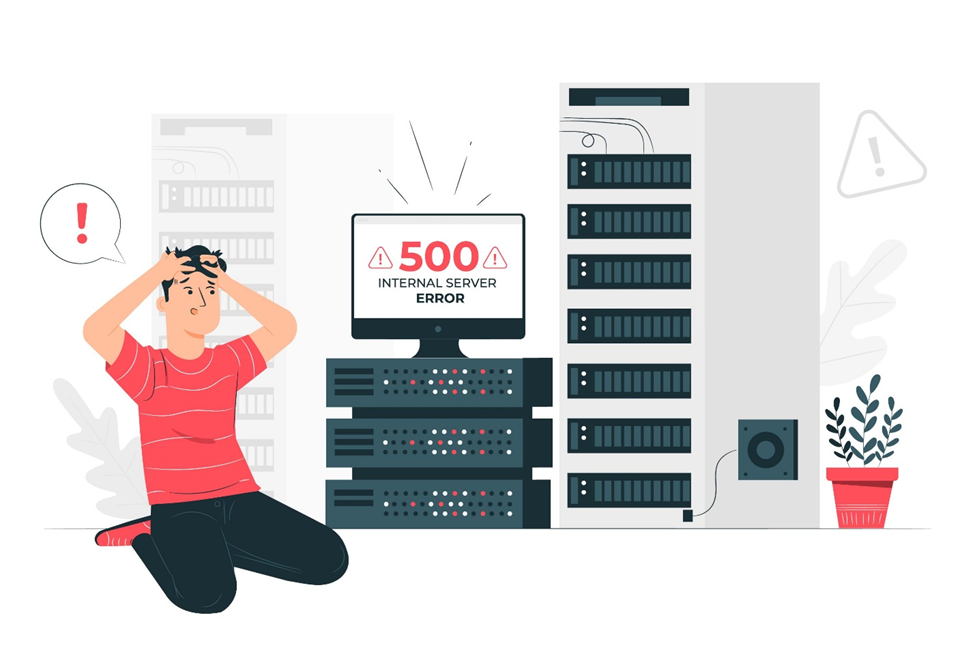How to Find the Best Web Hosting Service for Your Needs?

Strong 8k brings an ultra-HD IPTV experience to your living room and your pocket.
Choosing the best web hosting service is a crucial decision for individuals and businesses looking to establish an online presence. With numerous hosting providers available, each offering different features and pricing structures, selecting the right one can be overwhelming. A suitable hosting service ensures reliability, security, and scalability, while a poor choice can lead to downtime, slow website performance, and potential security vulnerabilities.
This article explores the factors to consider when choosing a web hosting provider, the different types of hosting services, and recommendations to help you make an informed decision.
Understanding Different Types of Web Hosting-
Before selecting a web hosting provider, it’s essential to understand the various hosting types and their applications. The right hosting choice depends on factors such as budget, technical expertise, and website requirements. Below are the most common types of web hosting explained in detail.
1. Shared Hosting
Shared hosting is the most budget-friendly option and is ideal for small websites, blogs, and startups. Multiple websites share the same server resources, including CPU, RAM, and bandwidth. This makes it an affordable and easy-to-manage choice for beginners who are just getting started online. The primary advantages of shared hosting include its low cost, user-friendly setup, and straightforward maintenance.
However, since multiple sites utilize the same resources, it comes with limitations. The shared environment may lead to slower website performance, especially during traffic spikes, and users have less control over server configurations, restricting advanced customization options.
2. Virtual Private Server (VPS) Hosting
VPS hosting provides a middle ground between affordability and performance. Although multiple websites share the same physical server, each website is allocated a dedicated portion of server resources, ensuring better performance and stability compared to shared hosting. One of the key benefits of VPS hosting is the improved speed and reliability, as websites are less affected by the activities of others on the same server.
Additionally, users gain greater control over configurations, allowing for custom software installations and security enhancements. The scalability of VPS hosting means that as website traffic grows, resources can be adjusted accordingly. However, this hosting type requires some level of technical knowledge to manage effectively, and it is more expensive than shared hosting, which may not be suitable for those with limited budgets.
3. Dedicated Hosting
Dedicated hosting offers maximum performance, security, and customization by providing an entire server exclusively for one website. This option is best suited for large businesses, high-traffic websites, and organizations that require superior reliability and security. With dedicated hosting, users have full control over server settings, allowing for complete customization based on specific business needs. The high performance ensures fast loading speeds and the ability to handle significant traffic loads without issues.
However, the exclusivity and power of dedicated hosting come at a higher cost, making it one of the most expensive hosting solutions available. Additionally, managing a dedicated server requires advanced technical expertise, which may necessitate hiring an IT team or server administrator.
4. Cloud Hosting
Cloud hosting utilizes multiple servers working together to balance the load and maximize uptime. This setup ensures that even if one server fails, another takes over, minimizing downtime and disruptions. Businesses with fluctuating traffic can greatly benefit from cloud hosting, as resources can be scaled up or down based on demand. The scalability and flexibility of cloud hosting allow businesses to pay for only the resources they use, following a pay-as-you-go pricing model.
This makes it an attractive option for growing businesses that experience seasonal or unpredictable traffic spikes. Despite these advantages, cloud hosting can become costly as resource usage increases, and managing a cloud-based environment requires some technical expertise to configure and optimize effectively.
5. Managed Hosting
Managed hosting services take care of all technical aspects, including server maintenance, security updates, and performance optimization. This is an excellent choice for individuals or businesses that prefer a hands-off approach to server management. WordPress hosting, a popular type of managed hosting, is specifically designed for WordPress users and offers enhanced speed, security, and expert support.
The biggest benefit of managed hosting is that it ensures optimal server performance without requiring users to handle complex technical tasks. Additionally, it provides enhanced security features and dedicated support from experts. However, the convenience comes at a higher price compared to unmanaged hosting, and customization options may be limited since the hosting provider controls most server settings.
Choosing the right web hosting solution depends on the specific needs of a website, available budget, and the level of technical expertise required. Whether opting for an affordable shared hosting plan or investing in a high-performance dedicated or cloud hosting solution, understanding the advantages and drawbacks of each option is crucial for making an informed decision.
Factors to Consider When Choosing a Web Hosting Service-
1. Performance and Reliability
Website speed and uptime directly impact user experience and search engine rankings. Look for a hosting provider that offers at least 99.9% uptime and uses SSD storage and Content Delivery Networks (CDNs) for fast load times.
2. Security Features
Security is critical to protecting your website from cyber threats. Ensure your hosting provider offers features such as:
• SSL certificates
• DDoS protection
• Regular backups
• Malware scanning and removal
3. Customer Support
Responsive customer support is vital for resolving issues quickly. Opt for a hosting service that provides 24/7 support via multiple channels, including live chat, phone, and email.
4. Scalability
Your hosting plan should be scalable to accommodate website growth. Choose a provider that allows you to upgrade your plan or add resources as needed.
5. Pricing and Renewal Rates
Compare hosting plans based on features and pricing. Be aware of promotional rates, as renewal prices are often higher. Some providers also charge additional fees for add-ons like domain registration, backups, or security features.
6. Ease of Use
If you’re a beginner, opt for a hosting provider with an intuitive control panel like cPanel or Plesk. Additionally, one-click installation options for CMS platforms like WordPress can simplify website setup.
7. Server Location
The physical location of your hosting server affects website speed. Choose a provider with data centers close to your target audience or one that offers a global Content Delivery Network (CDN).
Popular Web Hosting Providers-
• M2Host
M2Host is an affordable web hosting provider offering a range of hosting solutions, including shared, VPS, and dedicated hosting. It provides unlimited bandwidth and storage on many plans, making it a great choice for growing websites. M2Host also offers free website builders and one-click script installations, simplifying the process of website creation. With 24/7 customer support, users can rely on timely assistance for any hosting-related concerns. It is an excellent choice for small businesses and individuals seeking cost-effective yet feature-rich hosting services.
• WebHostingWorld
WebHostingWorld is a long-established provider known for its reliable and budget-friendly hosting services. It offers free SSL certificates, ensuring secure data transmission for all websites. The provider includes free website migration, making it easy for users to switch from another hosting company. WebHostingWorld also boasts a 99.9% uptime guarantee, ensuring stable website performance. With an intuitive control panel and easy-to-use tools, it is a great option for beginners and small businesses looking for hassle-free hosting solutions.
• Cloudways
Cloudways is a leading choice for cloud hosting, offering flexibility and high-performance solutions. It features a pay-as-you-go pricing model, which means users only pay for the resources they consume. Managed security and performance optimization are included, ensuring that websites remain secure and operate at peak efficiency. Cloudways supports multiple cloud providers, including AWS, Google Cloud, and DigitalOcean, giving users the freedom to choose their preferred infrastructure. This provider is best suited for businesses and developers looking for scalable and customizable hosting solutions.
• A2 Hosting
A2 Hosting is known for its high-speed performance, thanks to SSD storage and Turbo Servers that offer up to 20 times faster page loads. It provides free site migration, allowing users to switch to A2 Hosting without hassle. The company offers 24/7 support to assist customers with any hosting-related issues. Optimized WordPress hosting ensures that WordPress websites run efficiently, with pre-configured settings for speed and security. A2 Hosting is ideal for users who prioritize website speed and want a hosting provider that focuses on performance optimization.
• HostGator
HostGator is a budget-friendly hosting provider that caters to businesses and individuals looking for affordable yet reliable hosting solutions. With a 99.9% uptime guarantee, users can expect minimal downtime and consistent website performance. HostGator’s scalable hosting solutions allow users to start with a basic plan and upgrade as their website grows. Additionally, it offers free website migration, making it easier for users to transfer their existing websites from another provider without technical complications. HostGator is a strong contender for those who need an economical and reliable hosting option with room for growth.
Conclusion-
Selecting the best web hosting service depends on your website’s needs, budget, and technical expertise. If you’re a beginner, shared hosting with a reputable provider like Bluehost or SiteGround may be a good choice. Businesses expecting high traffic should consider VPS or dedicated hosting for better performance and control.
By evaluating key factors such as performance, security, support, scalability, and pricing, you can choose a hosting service that aligns with your goals and ensures a smooth online experience for your users. Take the time to research and compare hosting providers before making a final decision.
Note: IndiBlogHub features both user-submitted and editorial content. We do not verify third-party contributions. Read our Disclaimer and Privacy Policyfor details.







